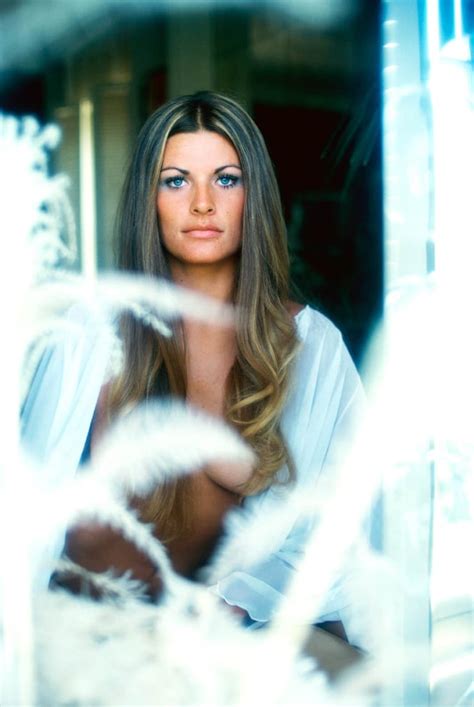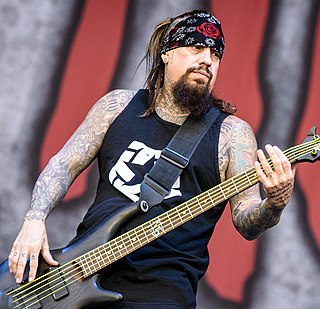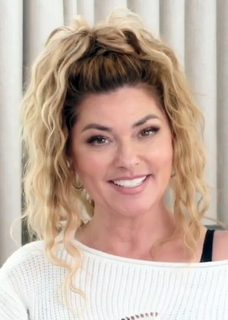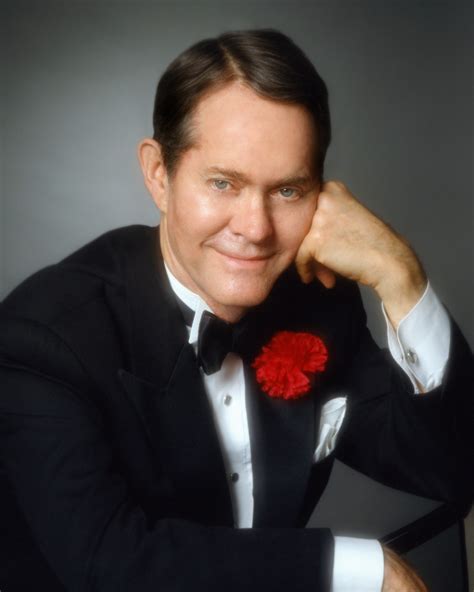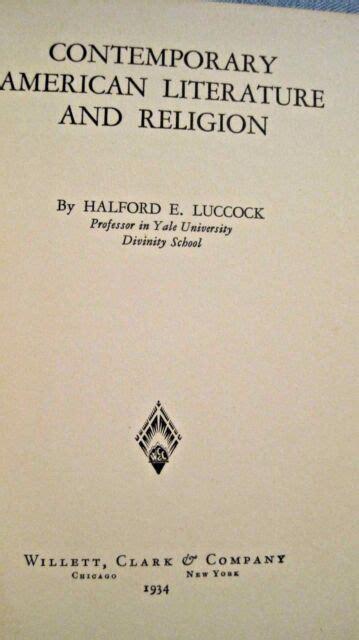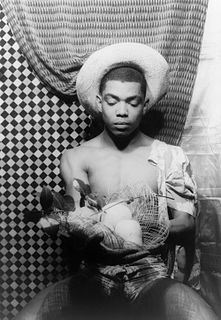Top 1200 Criticism Quotes & Sayings - Page 3
Explore popular Criticism quotes.
Last updated on December 22, 2024.
Yet the transgender lobby aggressively attacks any critical voice as transphobic and tries to censor us from speaking. There is a big difference between criticism and transphobia. The transgender lobby knows that censoring criticism allows the accusation of transphobia to prevail and appears willing to distort the words of those they disagree with.
When we express our needs indirectly through the use of evaluations, interpretations, and images, others are likely to hear criticism. When people hear anything that sounds like criticism, they tend to invest their energy in self-defense or counterattack. It's important that when we address somebody that we're clear what we want back.
Self-criticism is not "love," and it is certainly not indifferent. It's a form of hatred. And when I name that, when I see it for what it is (raw and uncomfortable and saddening), when I refuse to sugar-coat self criticism, judgment, agitation, and constantly trying to improve myself, then I'm one quantum leap closer to freedom.
My father was extremely loving to me and funny and wise and understanding, and at other times extremely demanding, critical, calculating, exacting. When you're a young woman, I think you want to please a lot, so maybe you accept more of the criticism than you would as an older person. But criticism can be very wounding. It certainly was to me.
Parents still have primary responsibility for raising children, but they must have the power to do so in ways consistent with their children's needs and their own values.... We must address ourselves less to the criticism and reform of parents themselves than to the criticism and reform of the institutions that sap their self-esteem and power.
Bitter criticism caused the sensitive Thomas Hardy, one of the finest novelists ever to enrich English literature, to give up forever the writing of fiction. Criticism drove Thomas Chatterton, the English poet, to suicide. . . . Any fool can criticize, condemn and complain - and most fools do. But it takes character and self-control to be understanding and forgiving.
I think where the criticism of videogames come from is where videogames are just Xeroxes of films, and when you get a film adaptation of that game, you've just Xeroxed something twice. I think that's where a lot of the criticism comes from - there are ultra-violent games that are already based on a million films. But there's definitely beauty and art and design in games. I don't think anybody could deny that.
Every time you make the right choice in the face of potential criticism you build strength that makes choosing the right easier the next time. When you make it clear that you will not vary from your standards, you will be led to individuals like yourself and the criticism from others will become less intense.
The weekly cartoons, as were my plays, came from a sense of criticism, criticism of the times, critical of the culture, of our manners and attitudes towards each other. The children's books come from the reverse. They're more supportive, since we're living in a time where we talk more about kids and do less, we talk about balancing the budget and we do it by cutting education.
Criticism is always going to be painful. You live through it. I'll live through it now. It's even harder when you're younger. You don't have the maturity. You're still developing. If you get damaged while you're developing, it's a psychological battle after that. Today, if I get the criticism, I'm not bothered...if I wear the wrong thing, I'm not going to lose sleep over it. Maybe when I was younger, I might have been more affected by that.
When I teach criticism, the first thing I say, and this sometimes pisses off younger - I mean, students, is that, opinions are the least part of criticism. We've all had the experience of going with a friend to a movie or a concert and you leave the theater and one of you loved it and one of you hated it, and that doesn't mean that one of you is an idiot. That's the way things work.
I think where the criticism of videogames come from is where videogames are just Xeroxes of films, and when you get a film adaptation of that game, you've just Xeroxed something twice. I think that's where a lot of the criticism comes from - there are ultra-violent games that are already based on a million films.
People who thought that she was busy going around trying to stir up difficulty where there was none or less than she imagined, were quite critical of her. She was, we must never forget, a public figure. And in democracies, public figures tend to attract criticism as well as praise. The most dangerous thing would be if anybody were regarded as above criticism. And Eleanor Roosevelt is, in recent years, getting there.
If the mystical lovers of the arts, who consider all criticism dissection and all dissection destruction of enjoyment, thought logically, an exclamation like "Goodness alive!" would be the best criticism of the most deserving work of art. There are critiques which say nothing but that, only they do so more extensively.
Common criticism of the Internet is that it is dominated by the crude, the uninformed, the immature, the smug, the untalented, the repetitious, the pathetic, the hostile, the deluded, the sefl-righteous, and the shrill. This criticism overlooks the fact that the Internet also offers - for the savvy individual who knows where to look - the tasteless and borderline insane.
...there ... remains a huge following [of Ayn Rand's philosophy] of those who ignore the indiscretions, infidelities, and moral inconsistencies of the founder and focus instead on the positive aspects of her philosophy. There is much in it to admire, if you do not have to accept the whole package... Criticism of the founder or followers of a philosophy does not, by itself, constitute a negation of any part of the philosophy... Criticism of part of a philosophy does not gainsay the whole.
You gotta deal with a lot of people, the naysayers... but I've always been the guy who kinda just smiles and laughs at it. I use it as constructive criticism to be honest. Whether they're intentionally trying to be kind of spiteful or not, it's constructive criticism because you can't say there's always truth to it but there's definitely something.
Expressions of sharp and even violent criticism of religion and the church have been welcomed, for they usually imply sincerity of thought. If caustic criticism of religious institutions and practices is irreligious, then Amos, Isaiah, and Jesus were very irreligious men. In fact, that is exactly what many of their contemporaries took them to be.
Many people value criticism in the early stage of a relationship, but become allergic to it over time. Remember this: No one can survive in a marriage (at least not happily) if they feel more judged than admired. Your partner won't make use of your constructive criticism if there's not a surrounding climate of admiration and respect.
I think the whole emphasis in England, in universities, on practical criticism (but not that so much as on historical criticism, knowing what period a line comes from) this is almost paralysing. In America, in University, we read - what? - T. S. Eliot, Dylan Thomas, Yeats, that is where we began. Shakespeare flaunted in the background. I'm not sure I agree with this, but I think that' for the young poet, the writing poet, it is not quite so frightening to go to university in America as it is in England, for these reasons.
Pedants make a great rout about criticism, as if it were a science of great depth, and required much pains and knowledge--criticism however is only the result of good sense, taste and judgment--three qualities that indeed seldom are found together, and extremely seldom in a pedant, which most critics are.
Read as little as possible of literary criticism - such things are either partisan opinions, which have become petrified and meaningless, hardened and empty of life, or else they are just clever word-games, in which one view wins today, and tomorrow the opposite view. Works of art are of an infinite solitude, and no means of approach is so useless as criticism.
In one sense, you put a lot of yourself into a small press - it's your personal tastes that are on the line - so when criticism is levelled it can feel personal. But, on the other hand, it can be very welcome and necessary. You're never entirely impervious, and one of the main benefits of being a small operation is that you can change the way you do things quickly in response to criticism. In all instances it pays to have a sense of humour and perspective.
In the eight years I worked at newspapers, even during a little stretch when I was a film critic, I was never, ever doing exclusively criticism. In the daily newspaper world, much more value is placed on reporting than on thinking abstractly about art. The eight years I was in newspapers, I was mainly a journalist in the conventional sense, and just doing criticism when there were opportunities.
Your regional newspaper, and I like to use this example, in your local museum buys a Picasso, that's news especially if they've spent $10 million for it. But if you don't have a credit on your staff then you don't have anybody who's confident to say whether or not it was a good Picasso, might even be aware of the fact that there are bad Picassos. Arts journalists who don't have the experience of criticism, the skill of criticism, don't think in terms of critical evaluation are not going to be as good a journalist as they might be.
It's the difference between someone who loves you more than anything in the world giving you criticism and getting it from some bitter stranger on the Internet. What my dad said to me was the kind of criticism where I was like, "Oh, my God, I'm on the wrong track." I'm so grateful to him for doing that. He was such a no-nonsense guy in that sense.
Criticism will need an injection of humility that is, a recognition of its role as ancillary to the arts, needed only occasionally in a temporary capacity. Since the critic exists only for introducing and explaining, he must be readily intelligible; he has no special vocabulary: criticism is in no way a science or a system.
To me, there's a huge difference between criticism and reviewing. I really love reading good criticism of television and film. To me, a critic is someone who analyzes a show, describes it, talks about the people in it, puts it in historical context of other shows like it, compares it and stuff, and then talks about the intent of the show and whether it failed or didn't.
DeFrantz's study...is not the first book about the protean Ailey, who was born in hardscrabble Texas in 1931 and died in 1989 after creating close to 80 works. But it is perhaps the most comprehensive, combining biography, criticism, the analysis of dance criticism, and a sort of corporate history, siting the now firmly established Alvin Ailey American Dance Theater in the international cultural landscape.
Therefore, criticism has to direct itself against itself, and against the mysterious Substance in which it has up to now hid itself. In this way criticism must resolve things such that the development of this Substance drives itself forward to the Universality and Certainty of the Idea of its actual existence, the Eternal Self-consciousness.
[On The Waste Land:] Various critics have done me the honor to interpret the poem in terms of criticism of the contemporary world, have considered it, indeed, as an important bit of social criticism. To me it was only the relief of a personal and wholly insignificant grouse against life; it is just a piece of rhythmical grumbling.
Faith lived in the incognito is one which is located outside the criticism coming from society , from politics , from history , for the very reason that it has itself the vocation to be a source of criticism. It is faith (lived in the incognito) which triggers the issues for the others, which causes everything seemingly established to be placed in doubt , which drives a wedge into the world of false assurances.
The visual is sorely undervalued in modern scholarship. Art history has attained only a fraction of the conceptual sophistication of literary criticism. Drunk with self-love, criticism has hugely overestimated the centrality of language to western culture. It has failed to see the electrifying sign language of images.
If I care to listen to every criticism, let alone act on them, then this shop may as well be closed for all other businesses. I have learned to do my best, and if the end result is good then I do not care for any criticism, but if the end result is not good, then even the praise of ten angels would not make the difference.
What was needed was a literary theory which, while preserving the formalist bent of New Criticism, its dogged attention to literature as aesthetic object rather than social practice, would make something a good deal more systematic and 'scientific' out of all this. The answer arrived in 1957, in the shape of the Canadian Northrop Fryes mighty 'totalization' of all literary genres, Anatomy of Criticism .
